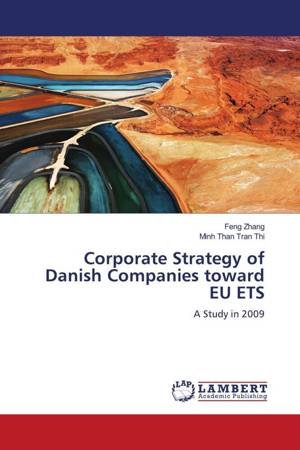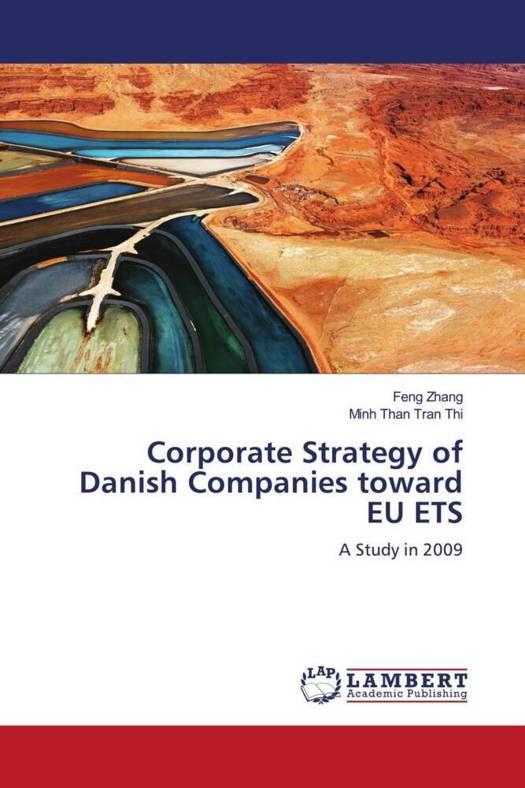
- Afhalen na 1 uur in een winkel met voorraad
- Gratis thuislevering in België vanaf € 30
- Ruim aanbod met 7 miljoen producten
- Afhalen na 1 uur in een winkel met voorraad
- Gratis thuislevering in België vanaf € 30
- Ruim aanbod met 7 miljoen producten
Zoeken
Corporate Strategy of Danish Companies Toward Eu Ets
A Study in 2009
Feng Zhang, Minh Than Tran Thi
Paperback | Engels
€ 48,45
+ 96 punten
Omschrijving
The study explored "how do Danish companies establish strategies towards EU ETS" and "what are their corporate strategies" by conducting empirical survey with industrial firms. Among all 65 firms on the list of Danish NAP II, information from 20 respondents was collected for the analytical study. Survey results shown that the impact of EU ETS to Danish companies was mostly evident in companies' increased production cost and the competitiveness loss of their products. Most firms developed strategies with a top-down decision making approach while following the logic of appropriateness. Their corporate responses towards EU ETS in principle are to comply through trading CO2 quota, switching energy suppliers/sources, and maybe technology innovation; their strategic plans were predominantly on a short-term basis, and would probably be further adapted according to institutional changes. Such findings provide valuable information about the implementation of EU ETS at the organization level, and shed light for both policy-makers and organizations' decision-makers.
Specificaties
Betrokkenen
- Auteur(s):
- Uitgeverij:
Inhoud
- Aantal bladzijden:
- 84
- Taal:
- Engels
Eigenschappen
- Productcode (EAN):
- 9783844304305
- Verschijningsdatum:
- 1/02/2011
- Uitvoering:
- Paperback
- Formaat:
- Trade paperback (VS)
- Afmetingen:
- 152 mm x 229 mm
- Gewicht:
- 136 g

Alleen bij Standaard Boekhandel
+ 96 punten op je klantenkaart van Standaard Boekhandel
Beoordelingen
We publiceren alleen reviews die voldoen aan de voorwaarden voor reviews. Bekijk onze voorwaarden voor reviews.











